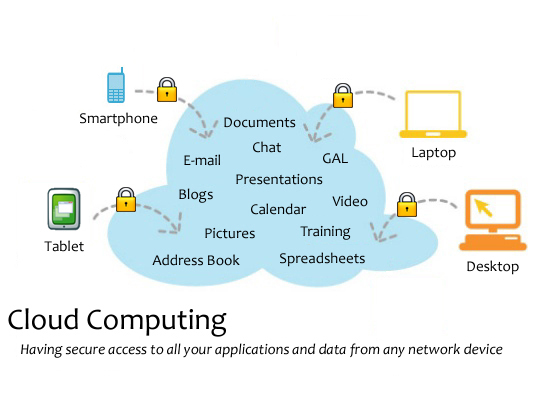Powered By…

Clouded Solutions are a suite of business and professional resources utilizing concepts of Cloud Computing, Remote Desktop Protocol and Virtual Hosting. Over the last decade technological advancements have driven application and servers costs down while improving accessibility and the user interface. No longer do users need a degree in computer science to navigate the environment of mainframes and server applications. Solid cloud providers have created an environment that is not only user friendly but also maintains 100% up-time, network stability and redundancy to ensure data security. At Total Merchant Network we break up Clouded Solutions into 3 key categories. (Click on link below for more information)
Remote Desktop Protocol (RDP)
Ever since the turn of the century Remote Desktop Protocol (RDP) has been installed standard on Windows operating systems. RDP is a proprietary protocol developed by Microsoft that provides a computer user with a graphical interface to another computer. Client versions exist for most operating systems including Windows, Mac OS, Linux, Unix and Android. The benefits to this resource are many but chief among them is mobility or access to a local machine from anywhere with an internet connection. This has broken down physical borders previously necessary in the business, IT and networking environments.
Cloud Computing
Extending upon the basics of RDP and server / mainframe applications, cloud computing has brought the computing world together like never before. Today cloud computing allows users to access multiple server-based computational resources via the Internet or Wide Area Network (WAN) utilizing devices such as a computer, smart phone, net-book tablet and other devices. The key to cloud computing unlike file sharing, or web browsing is that applications are provided and managed in the cloud accessible through a normal internet connection and web browser. This means that software on the local machine is not necessary, which makes flash memory only devices and portable devices just as powerful as traditional computers. Another key to the cloud configuration is that data is stored and backed-up remotely rather then on the local device. This practice has demonstrated to greatly reduce the risk of data loss, due to cloud providers implementation of redundant data back up and secure location of hardware. (See diagram below for visual representation of cloud computing)

Jump to Cloud Accounting or Application Hosting
Virtual Hosting
Virtual hosting is designed to lower costs of web hosting be combining multiple domain names on one computer using a single IP address. The cost reduction is derived because only one machine is used and resources such as memory and processor cycles can be shared among many sites. This is a common practice of large scale hosting companies that aim to deliver low cost hosting to business owners and non-business owners alike. For most people the cost and feasibility of setting up and maintaining a traditional web server is not an option and thus this type of hosting has flourished in popularity since the turn of the century. Another form of Virtual hosting that is typically used as a marketing term is “Virtual Private Server.” These terms are used to describe a type of hosting that allow shares the physical location of other domains, has the functional equivalent to a separate physical computer. This is not to be confused with “Dedicated Hosting” where the client leases an entire server not shared with anyone. The flexibility gained here is that the machine is typically still hosted in the provider’s data center and in many cases server management is offered.






 Speak To A Specialist -
Speak To A Specialist -